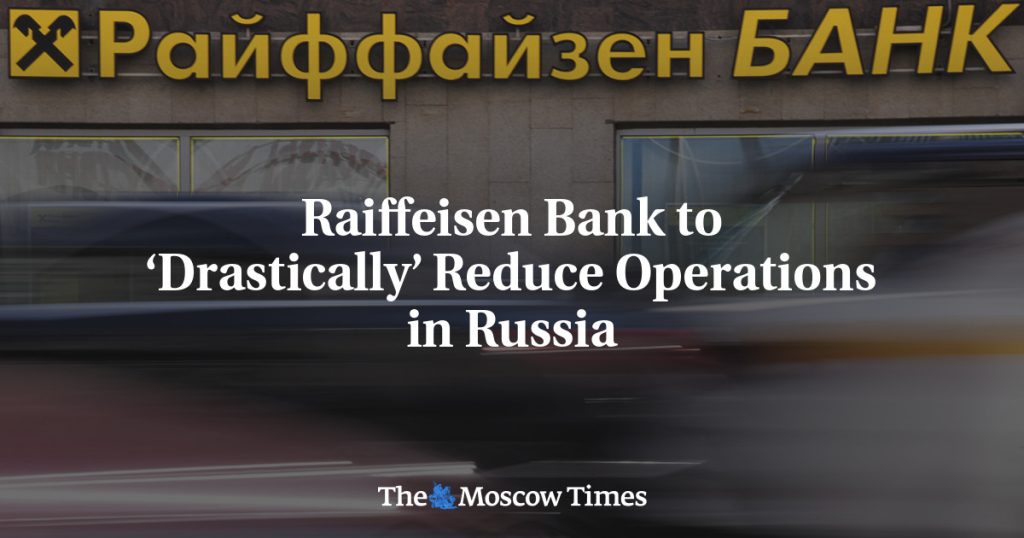Austria’s Raiffeisen Bank International is in the process of scaling back its Russian business, which has been a significant source of profit for the bank. The bank announced plans to sell or spin off its Russian subsidiary last year but has faced challenges finding local buyers. In its recent earnings report, Raiffeisen Bank International revealed that its Russian division accounted for a large portion of its global profit in the first half of 2024. The bank has already taken steps to reduce its loan business, clearing, settlement, and payment services in Russia, with further reductions planned in response to requirements from the European Central Bank (ECB).
Raiffeisen Bank International acknowledged that completing the deconsolidation of its Russian bank is a complex process that requires approvals from various Russian and European authorities, as well as central banks. The bank’s ability to forecast a timeline for the exit from the Russian market is hindered by these factors. Campaigners have criticized Raiffeisen for delaying its exit from Russia and benefiting from increased profits following Russia’s invasion of Ukraine. Raiffeisen was the largest foreign bank operating in Russia, catering to European companies, foreign workers, and high-end international clients. However, the bank also expanded its portfolio of Russian domestic business clients before the war.
The challenges faced by Raiffeisen in exiting the Russian market highlight the complexities of disengaging from a lucrative business operation. The bank is under pressure to comply with regulations from the European Central Bank and divest its Russian subsidiary, but finding suitable buyers has proven to be a major obstacle. The decision to reduce business operations in Russia has already resulted in some restrictions for customers, and further steps are expected to follow. Raiffeisen Bank International is navigating a delicate process of unwinding its Russian business while adhering to regulatory requirements and facing scrutiny from campaigners who accuse the bank of delaying its exit.
The situation with Raiffeisen Bank International’s Russian operations underscores the challenges faced by foreign financial institutions operating in politically sensitive environments. The bank’s decision to scale back its presence in Russia is driven by a combination of regulatory pressure and reputational concerns. As one of the largest foreign banks in Russia, Raiffeisen’s exit from the market is closely watched by stakeholders and regulators. The complexities of deconsolidating a profitable business unit underscore the multifaceted considerations involved in extricating oneself from a high-risk market like Russia.
The ongoing developments with Raiffeisen Bank International’s Russian business emphasize the evolving landscape of international banking and the impact of geopolitical events on financial institutions. The bank’s efforts to disentangle itself from a major source of profit illustrate the challenges of balancing financial interests with regulatory compliance and ethical considerations. As Raiffeisen continues to navigate its exit from Russia, the process serves as a case study for other multinational banks operating in similar challenging environments. The lessons learned from this experience will likely influence future strategies for managing risk and ensuring compliance in complex geopolitical contexts.


